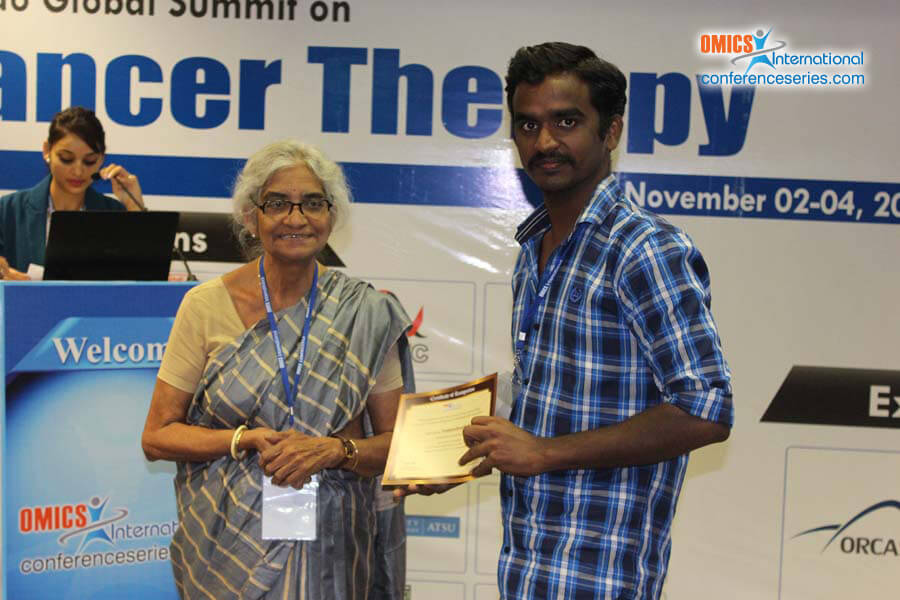
Venkateshwarlu Bandi
Pondicherry University, India
Title: Functional role of specific mi-RNA(s) on predicted target genes
Biography
Biography: Venkateshwarlu Bandi
Abstract
Micro-RNAs (mi-RNAs) are a class of small, single-stranded, non-coding RNAs that negatively regulate gene expression at the post-transcriptional level or translational repression by halting ribosomes during protein synthesis. They play an important role(s) in the regulation of several cellular, physiological, developmental processes and proliferation. Aberrant mi-RNAs expression is associated with many human diseases including leukemia and other cancers. Based on literature evidences on miRNA and cancer, we hypothesize that tumor suppressor gene(s) could be regulated through specific mi-RNAs in cancer cells. In this study, we randomly selected several mi-RNAs based on their specific functional roles in cancer cells and predicted their target genes using standard bioinformatics tools. The mi-RNAs and 3’ UTR DNA sequences were PCR amplified from HEK-293 genomic DNA and cloned in basic vector and GFP vector respectively. To validate these mi-RNAs on their target gene silencing, we performed co-transfection using both mi-RNA and specific 3’UTR-GFP plasmids and analyzed the green fluorescence signals by fluorescence microscopy. Our preliminary observations showed some positive silencing for several predicted targets genes with specific miRNA(s). Currently, we are in the process of characterizing these mi-RNAs at molecular levels for their specific function using qRT-PCR and other molecular approaches. In addition, we evaluate the potential biological effects of these miRNAs on cell viability, cell cycle progression, apoptotic effects, etc. on cancer cells. Overall, this study will help in identifying new biomarkers for early detection and therapeutic strategy for better cancer treatment.


